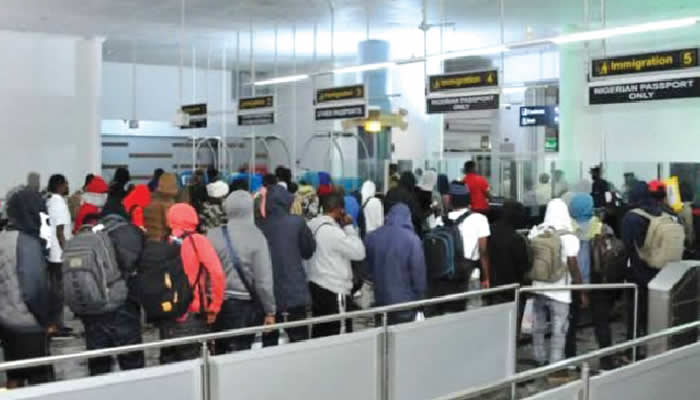For many Nigerians dreaming of starting afresh abroad, a university degree is often seen as a golden ticket. But what if you could relocate without one?
A recent Insider Monkey ranking reveals 12 countries that offer some of the best opportunities for Nigerians and other immigrants without higher education. Based on metrics like employment rates among low-educated foreign-born individuals, recent migration patterns, and the share of migrants in the population, these nations stand out as friendly destinations for those without formal qualifications.
Here are the top 12 countries making global relocation easier — no degree required:
1. Luxembourg – Average Index: 43%
-
Low-educated migrants: 12%
-
Employment rate: 71%
-
Migrant share of population: 48%
Small but mighty, Luxembourg’s booming economy and nearly 50% migrant population make it welcoming for newcomers, especially in blue-collar and service sectors.
2. Malta – Average Index: 42%
-
Low-educated migrants: 24%
-
Employment rate: 74%
-
Migrant share of population: 26%
This Mediterranean gem is ideal for workers in tourism, hospitality, and care sectors — no degree needed, just a willingness to work.
3. Greece – Average Index: 41%
-
Low-educated migrants: 56%
-
Employment rate: 53%
-
Migrant share of population: 13%
Despite economic challenges, Greece remains open to low-skilled migrants, especially in agriculture and construction.
4. Cyprus – Average Index: 39%
-
Low-educated migrants: 30%
-
Employment rate: 71%
-
Migrant share of population: 16%
With a strong job market and lenient immigration pathways, Cyprus is gaining traction among non-degree holders.
5. Italy – Average Index: 41%
-
Low-educated migrants: 53%
-
Employment rate: 58%
-
Migrant share of population: 11%
Italy’s aging population and demand for care workers and laborers create opportunities for immigrants without formal education.
6. Iceland – Average Index: 43%
-
Low-educated migrants: 30%
-
Employment rate: 81%
-
Migrant share of population: 19%
With one of the highest employment rates for low-educated migrants, Iceland is a rising star for job seekers without degrees.
7. Sweden – Average Index: 39%
-
Low-educated migrants: 39%
-
Employment rate: 57%
-
Migrant share of population: 20%
Sweden’s inclusive labour market and support systems make it a stable option for those starting fresh.
8. Germany – Average Index: 38%
-
Low-educated migrants: 38%
-
Employment rate: 58%
-
Migrant share of population: 19%
Germany’s industrial base offers openings in logistics, manufacturing, and elderly care — often with training on arrival.
9. Switzerland – Average Index: 35%
-
Low-educated migrants: 11%
-
Employment rate: 65%
-
Migrant share of population: 29%
While selective, Switzerland still offers chances in construction, cleaning, and hospitality for those without a degree.
10. Finland – Average Index: 34%
-
Low-educated migrants: 39%
-
Employment rate: 58%
-
Migrant share of population: 7%
Finland is increasingly looking outward to fill jobs in healthcare, services, and agriculture — degree optional.
11. Denmark – Average Index: 34%
-
Low-educated migrants: 31%
-
Employment rate: 59%
-
Migrant share of population: 12%
With high wages and good working conditions, Denmark is worth considering, especially for trade or service work.
12. Hungary – Average Index: 34%
-
Low-educated migrants: 15%
-
Employment rate: 80%
-
Migrant share of population: 6%
Hungary’s manufacturing sector is booming, and the country boasts one of the highest employment rates for non-degree holders.
From Iceland to Malta, these countries prove that academic credentials aren’t the only path to building a life abroad. Whether you're skilled with your hands or looking to start anew, these destinations offer a lifeline for Nigerians looking beyond the classroom.
Remember: Immigration policies can change, so always check embassy websites or immigration portals before planning your move.




